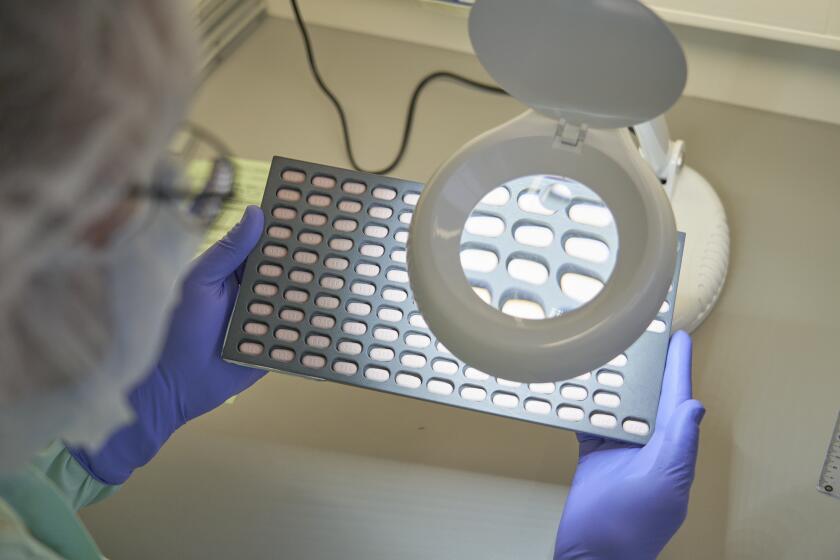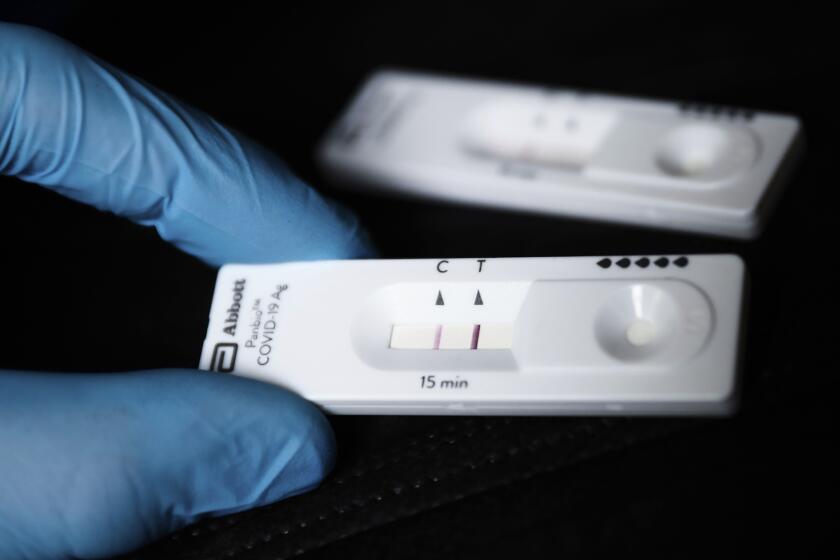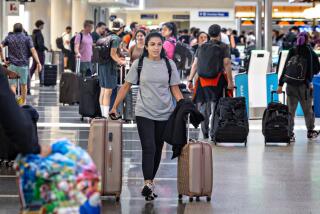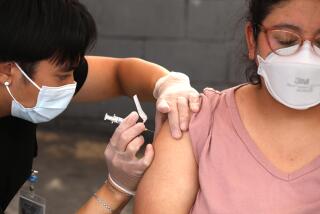If you get the coronavirus, how do you get anti-COVID drugs?
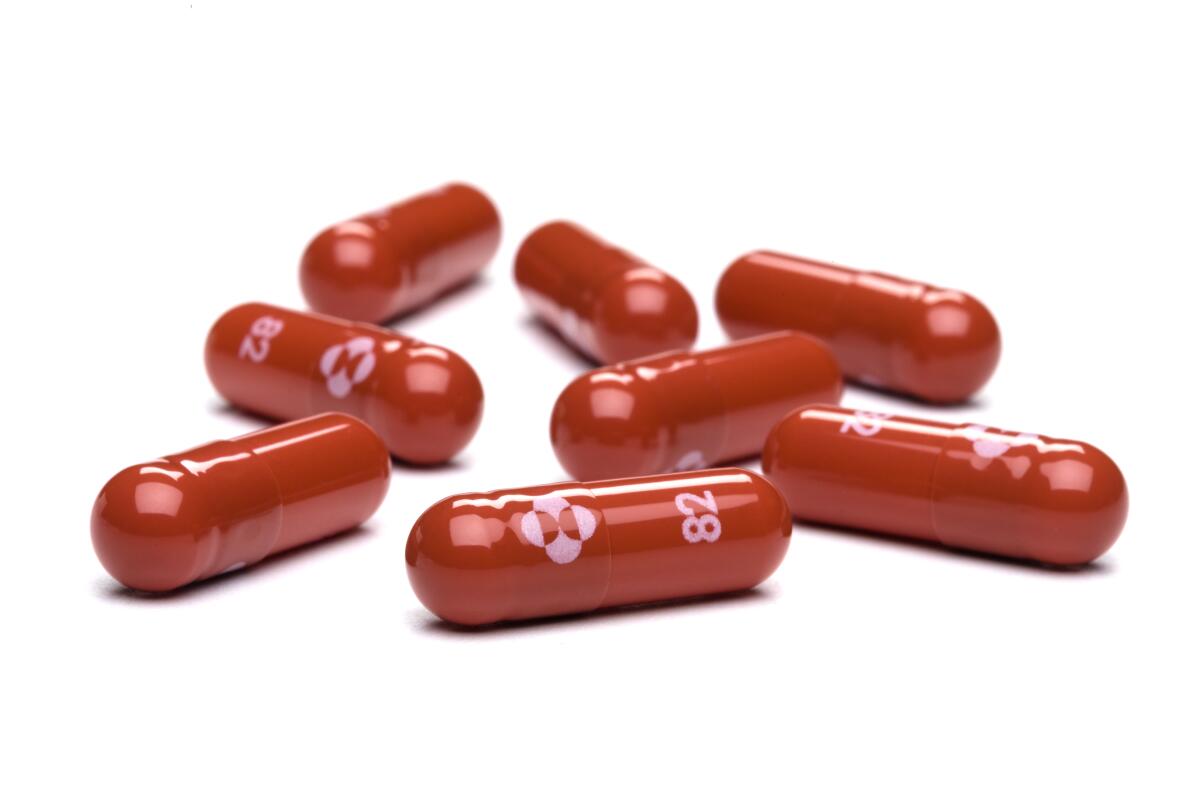
If you come down with the coronavirus and are at high risk, how can you get access to anti-COVID drugs?
The medications are becoming increasingly available, and there is no longer a shortage of the drugs in most locations, California health officials say.
Here’s what you should know.
‘Test-to-treat’ sites
It’s important to know your coronavirus test status early in the infection and seek drugs promptly.
For those who have a regular health provider, you can ask for a prescription. The U.S. government also has set up “test-to-treat” sites, which are meant to allow people to get tested and free anti-COVID pills at the same location, such as a pharmacy or clinic, as long as staff can either conduct a coronavirus test or evaluate an at-home test result and have on-site healthcare providers who can assess the patient.
A list of sites offering test-to-treat services in L.A. County can be found at ph.lacounty.gov/covidmedicines or by calling the county Department of Public Health at (833) 540-0473 between 8 a.m. and 8:30 p.m. seven days a week. They include certain CVS and Walgreens locations, as well as hospitals, clinics and pharmacies.
Test-to-treat sites outside L.A. County can be found at aspr.hhs.gov/TestToTreat.
L.A. County has launched a program that offers anti-COVID pills for free to infected people who get tested, or show test results, at select pharmacies.
In L.A. County, public health officials have recommended that people seeking test-to-treat services call ahead to check that medications are in stock. Some sites require appointments; others accept walk-ins. Patients also should ask about administration fees, the public health department said.
To get medication, people can either get tested on site or bring proof of positive results with them. They also need to be prescribed the medication by a provider. Some test-to-treat sites have a provider on site, while others use telehealth visits.
L.A. County also is offering its own telehealth services to help prescribe antiviral medications to those who are eligible, said Dr. Franklin Pratt, a senior physician with the public health department.
“We have to do an electronic prescription, and then they go to the pharmacy and pick it up,” he said. Patients can be connected with that service by calling (833) 540-0473 between 8 a.m. and 8:30 p.m. seven days a week. An L.A. County resident with a positive test also can get drugs mailed to them at no cost by calling the same number.
Because there is a short window when COVID patients can be prescribed oral antivirals, Pratt urged people to reach out promptly if they have symptoms.
“Please, please come in as soon as you develop symptoms. Because once we hit Day 6” — six days after symptoms begin — “we can’t give you the oral antivirals and we have to use different treatments that are logistically more difficult and involve intravenous medication,” Pratt said.
Because of the risk of spreading the coronavirus, the public health department said people seeking COVID testing or medications should not go inside without a mask if they have symptoms or have tested positive and should use telehealth and drive-through services when possible.
White House announced a ‘test to treat’ initiative, in which Americans can get tested at and receive treatment from participating pharmacies, clinics and centers for free. It’s part of a broader plan to move the country towards normalcy.
Paxlovid and molnupiravir
The antiviral pills offered in the federal test-to-treat program are Paxlovid (known generically as ritonavir-boosted nirmatrelvir), manufactured by Pfizer, and molnupiravir, made by Merck & Co., which treat mild to moderate COVID-19.
According to federal guidelines, Paxlovid and molnupiravir are recommended for patients “at high risk of progressing to severe COVID-19” but can be given only to those who are not so ill they require hospitalization or supplemental oxygen treatment.
Paxlovid can be given to those 12 and older who weigh at least 88 pounds. The pills are usually taken twice a day for five days.
In one trial, Paxlovid reduced the risk of hospitalization or death by 88% in non-hospitalized adults with a confirmed coronavirus infection, according to the National Institutes of Health.
Molnupiravir is for adults, is not recommended for use during pregnancy and is recommended only if other treatment medications are not available.
The Biden administration announced Tuesday that each U.S. household can order eight free at-home test kits, on top of the eight previously made available.
Bebtelovimab
Another drug, which is not in the test-to-treat program but is available as an anti-COVID medicine, is bebtelovimab, which is in a class of medications called monoclonal antibodies.
Bebtelovimab is for use in people 12 and older who have tested positive for the coronavirus, are at high risk and for whom other treatment options are not available or appropriate. It needs to be given by injection over at least 30 minutes.
For the record:
10:10 p.m. May 2, 2022This article says bebtelovimab needs to be given by injection over at least 30 minutes. The correct length of time is 30 seconds.
Remdesivir
Another anti-COVID drug — remdesivir — is in the class of medications known as antivirals.
Remdesivir is administered intravenously in a slow infusion over 30 minutes to two hours in a hospital. For non-hospitalized patients, it’s given once a day for three days and is started within seven days of initial symptoms; for hospitalized patients with severe COVID-19, it’s typically administered once a day for five to 10 days.
Unlike the anti-COVID drugs that are available as pills, remdesivir is the only antiviral that can be used to treat children under the age of 12, as long as they weigh at least 7.7 pounds.
The U.S. Food and Drug Administration said its preferred therapies are first Paxlovid, and then remdesivir. When neither is available or feasible to use, the FDA says bebtelovimab and molnupiravir can be considered as alternatives.
More to Read
Sign up for Essential California
The most important California stories and recommendations in your inbox every morning.
You may occasionally receive promotional content from the Los Angeles Times.
